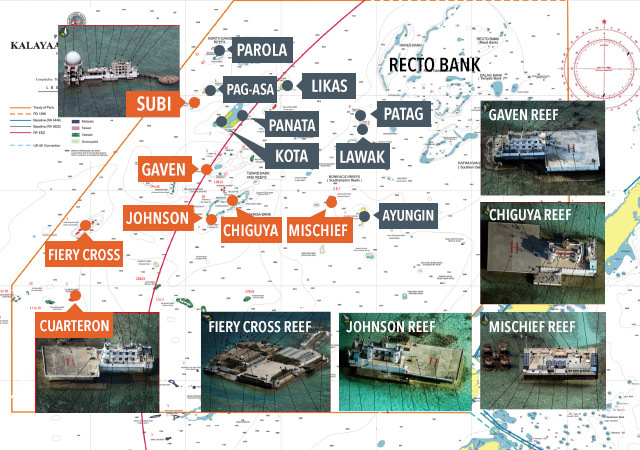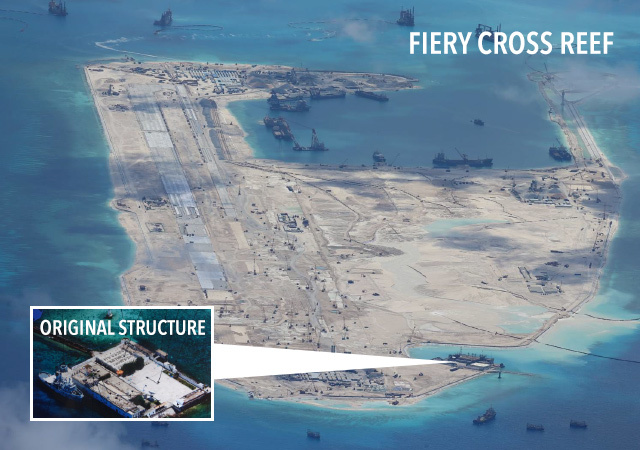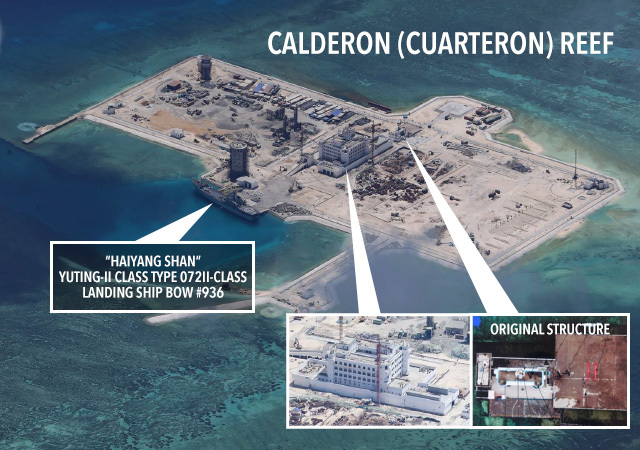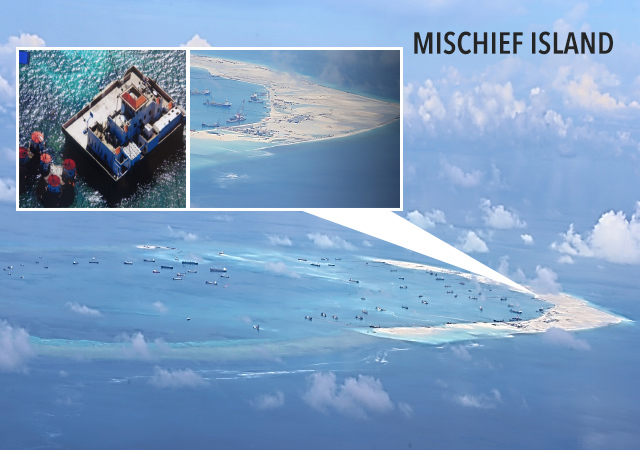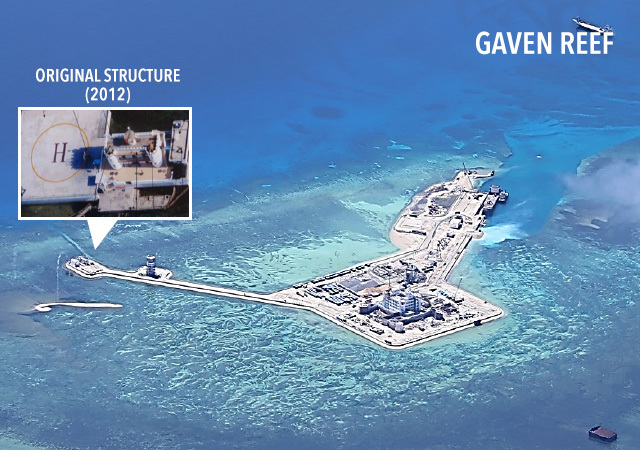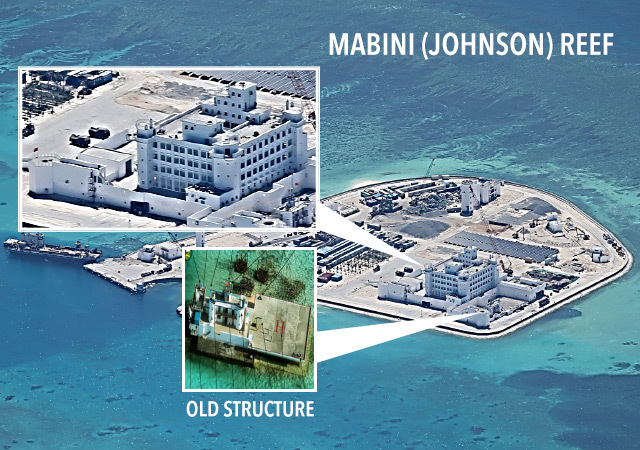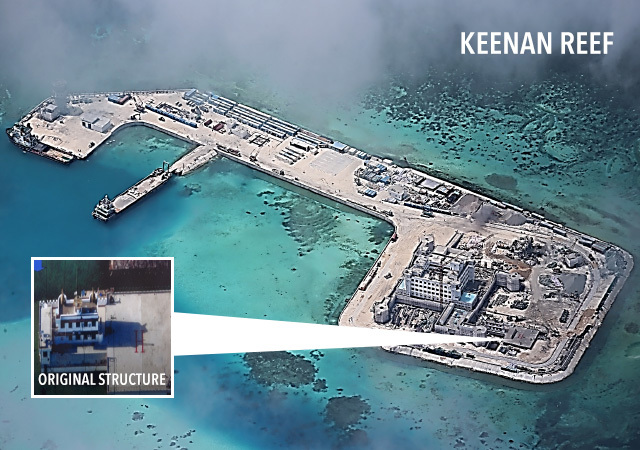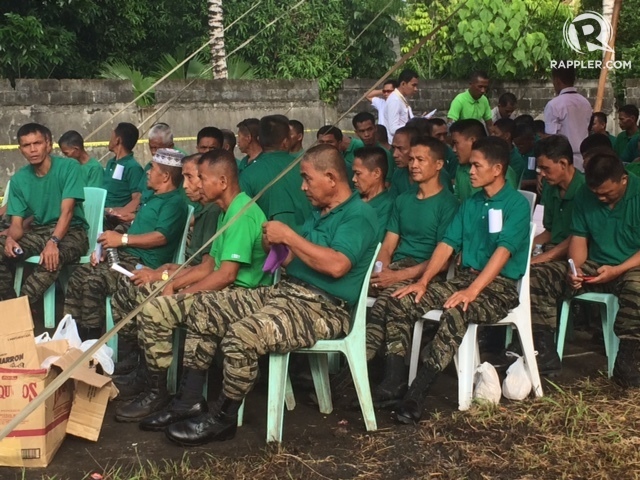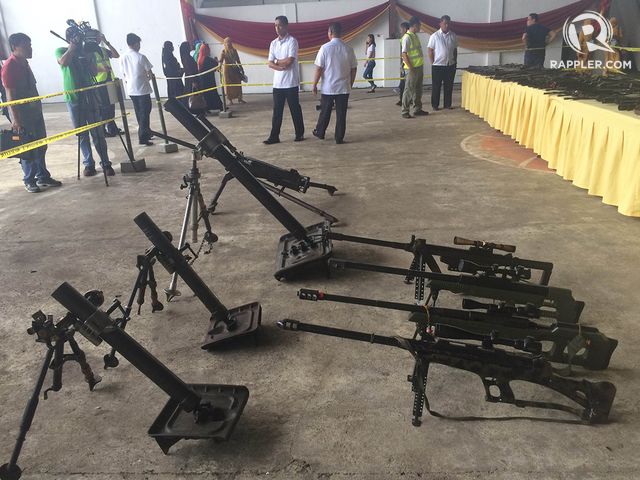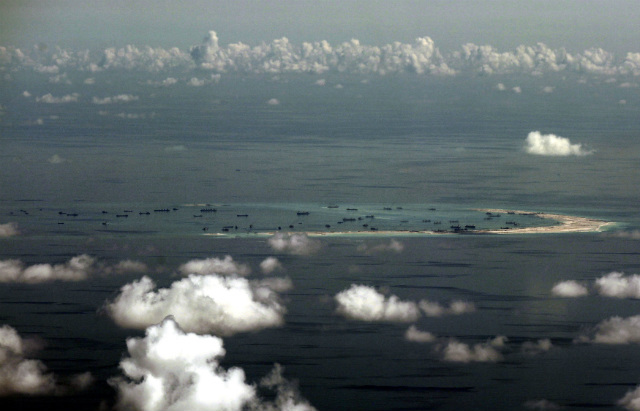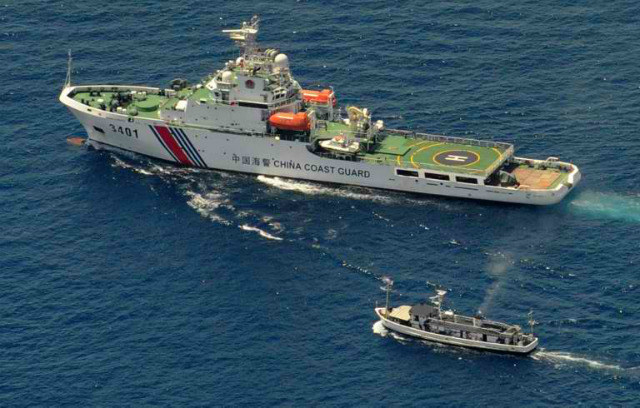From Rappler (Jun 17):
'Old comrades' return to civilian life
What does the decommissioning process for members of the Moro Islamic Liberation Front entail?
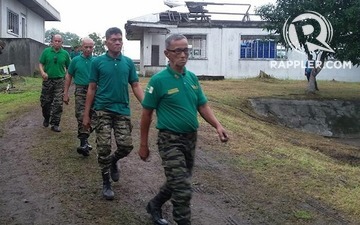 FIRST STEP. Senior members of the Moro Islamic Liberation Front arrive at the venue of the symbolic turnover of firearms on June 16, 2015. Photo by Rappler
After 4 decades of fighting the government, senior Moro rebels on Wednesday, June 17, were among the 145 members of the Moro Islamic Liberation Front (MILF) who agreed to abandon their revolutionary roots.
FIRST STEP. Senior members of the Moro Islamic Liberation Front arrive at the venue of the symbolic turnover of firearms on June 16, 2015. Photo by Rappler
After 4 decades of fighting the government, senior Moro rebels on Wednesday, June 17, were among the 145 members of the Moro Islamic Liberation Front (MILF) who agreed to abandon their revolutionary roots.
Kahar Bawa is one of the "old comrades" of the Moro struggle who is taking the next steps towards mainstream life.
He was part of the Moro struggle since its inception. In 1971, Bawa joined the Blackshirts – the precursor of the Moro National Liberation Front (MNLF). When the MILF broke away from the MNLF in the 1970s, Bawa was among those who followed suit.
Two of his nieces were among the 150,000 individuals that were killed over the course of the 4-decade war.
On Tuesday, June 16, Bawa joined some of his comrades at the symbolic decommisioning of MILF troops and firearms to mark the beginning of a gradual process. He officially "retired" as a trainor for recruits.
In a culture where owning guns is a way of life, convincing veteran fighters to decommission did not come easy.
Unlike others, however, Bawa was ready. He was, after all, already 62.
'Yung mga iba kasi hindi pa nila maunawaan kung ano ang ibig sabihin ng decommissioning (Others cannot understand the meaning of decommissioning)," he said.
He added, "Sa amin, ang sinusunod namin 'yung utos ng pinuno namin (For us, we follow the orders of our leader)."
It took one year before the decommissioning of the first batch of the MILF's armed wing, the Bangsamoro Islamic Armed Forces, finally happened, said government chief negotiator Miriam Coronel Ferrer.
Despite uncertainties in the passage of the law implementing the peace deal in Congress,
MILF chairman Murad Ebrahim said they considered decommissioning as an "obligation" to help push the peace process forward.
[Video: Jacob Palao, deputy head of the MILF operations department
Jacob Palao, 57,
BIAF's deputy head for operations, was among those who initially protested the
arrangement.
"Tumutol
ako nung hindi ko pa nalaman din na para rin sa aming MILF ito. Para sa kapayapaan din (I
opposed it when I did not know that this is also for the MILF, for
peace)," he said.
"(Tumutol
ako noong una) kasi hindi pa natin alam kung ano ang takbo nito (I opposed it at first because I did not
know how it would go)," he added.
Surrendering is
taboo for Moro rebels, The MILF has stressed that the decommissioning process
agreed upon under the peace accord would not be tantamount to such.
Murad said they
chose the initial batch of members "randomly" from different units.
Instead of
turning over rebel weapons to the government, the Independent Decommissioning
Body was created to verify and secure the firearms. The team – led by former Turkey
ambassador to NATO Haydar Berk – is also in charge of verifying and processing
combatants.
A total of 55
high-powered firearms and 20 crew-serve weapons were deactivated on Tuesday,
June 16, in ceremonies graced by President Benigno Aquino III.
They were stored in the MILF's former stronghold, Camp Abubakar, now
known as Camp Iranun of the military's 603rd brigade.
The MILF has
about 10,000 members, according to government estimates.
State of
transition
What is unique
about the decommissioning process in Mindanao
from other peace processes around the world is that it will be staggered.
The next 30% of
MILF firearms will be decommissioned once the Bangsamoro bill is passed and
ratified. Another 35% will be turned over when the Bangsamoro government and
its police force are established. The rest will be decommissioned upon the
signing of an exit agreement stating that the peace deal has been implemented.
Both the government
and the MILF have refused to disclose the total number of firearms.
There will be no
required reintegration of former combatants to the police and the military,
unlike the arrangement with the MNLF during the Ramos administration.
There will also be
no "Balik-Baril" program where rebels would surrender their
firearms in exchange for cash.
Instead,
livelihood programs would be awarded in tranches and the progress of the
recipients, monitored.
There will also
be no instant transformation of rebel camps.
NEW LIFE. Kahar Bawa, 62, is among the pioneer members of the Moro Islamic Liberation Front who agreed to decommission. Photo by Rappler
While he has been formally decommissioned, Bawa, for instance, went back to his house in Camp Darapanan after Tuesday's event at the old capitol in Sultan Kudarat town, just a few kilometers away from Camp Darapanan.
His ties with the MILF also extend to his family. Bawa's son, Akmad, is also an MILF member. Akmad used to be one of Murad's close-in security team. After getting married and having 3 kids, he had to find a regular job to support their needs. Nowadays, he works as a driver in Maguindanao while serving part-time for the MILF.
Bawa's son said his father wants to own a small farm. Palao, meanwhile, said he wants to manage his own business.
A total of P2.4 billion has been allocated for the decommissioning efforts, said Chief Peace Adviser Teresita Deles.
For younger MILF members, the government's socio-economic package may fund their education. For older ones, seed money for small businesses may be provided.
Psycho-social services will also be made available.
Although there is no cap, National Security Council Undersecretary Zenaida Brosas said Monday, June 15, that an estimated P100,000 is allocated for each combatant.
The money will not be provided in one go – unlike during the time of the MNLF. On Tuesday, the former rebels received Philhealth cards and an initial cash package.
The road ahead
What is the assurance that the former rebels would not return to the armed struggle?
Iqbal admits that there is none. The only assurance is if the situation in Mindanao is normalized, removing the need for guns.
"But with the peace settlement with government, I don't think any normal person will just go back to the field and fight the government. That's not rational," he said.
Leaving behind 4 decades of armed struggle would be worth it if the peace deal is implemented, Palao said.
"Noon nahirapan kami pero 'pag matupad lang ang usapang pangkapayapaan, okay na (We had a difficult time before but if the peace talks are implemented, it would be okay)," Palao said.
Can a Moro rebel give up his guns? As he returned to mainstream life, Palao said, "Mahalaga yun pero wala nang halaga ngayon (It is important but it no longer has value)."
